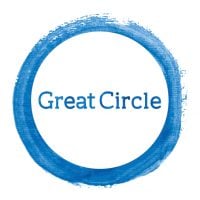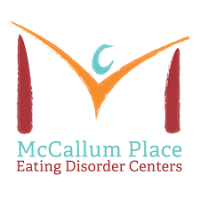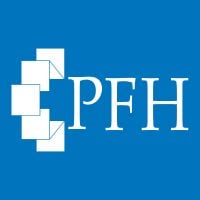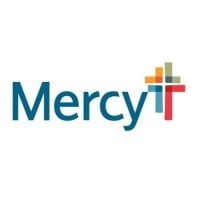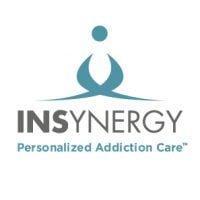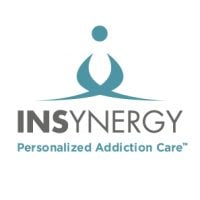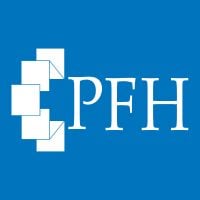Great Circle - Saint Louis
Drug Rehab Center in Saint Louis, Missouri
Great Circle - Saint Louis, located in Saint Louis, Missouri, is a mental health, dual diagnosis, and drug addiction treatment facility that offers inpatient and outpatient care, personalized treatment plans, evidence-based approaches, and support for families to promote long-term recovery and healthier lives.
About Great Circle - Saint Louis in Missouri
Great Circle - Saint Louis, situated in Missouri, is a specialized private rehabilitation center focusing on mental health treatment. Esteemed for its holistic approach, this facility goes beyond traditional methods to offer comprehensive care tailored to individual needs. Its commitment to growth and outreach highlights its importance in the community, serving as a beacon for those seeking sobriety and mental wellness.
Accredited by the Joint Commission and holding a state license, Great Circle - Saint Louis ensures the highest standards of care for its clients. The facility takes pride in its dual diagnosis and drug addiction treatment capabilities, ensuring varied levels of care, including inpatient and outpatient services, to meet diverse needs.
- Comprehensive Mental Health Focus: Addresses a wide range of mental health issues with tailored treatment plans.
- Dual Diagnosis Expertise: Specializes in treating individuals with co-occurring mental health and substance use disorders.
- Family Involvement: Encourages family participation in the recovery process to support long-term sobriety and mental health.
At Great Circle - Saint Louis, individuals struggling with drug addiction, mental health issues, and dual diagnoses find hope and healing. Through evidence-based treatments such as therapy, counseling, and medication management, alongside personalized care plans, this facility offers a compassionate road to recovery.
Genders
Ages
Modality
Additional
Accreditations
State License

JCAHO
Conditions and Issues Treated
Levels of Care Offered
This center offers a variety of custom treatment tailored to individual recovery. Currently available are Inpatient, Outpatient, with additional therapies available as listed below.
Going to an inpatient rehab facility means living there while all aspects of addiction or co-occurring disorder get addressed. The treatment involves medical supervision, therapy, and future planning.
This type of rehabilitation provides a drug-free environment for people who struggle with chronic/long-term addiction without having access to drugs outside the center (or their own home). It takes away any distractions because they live there 24 hours per day. If someone is trying to break out old habits, which could lead them back into substance abuse, things like jobs or school can be put on hold until after they complete their stay to focus solely on recovery.
Outpatient programs at Great Circle - Saint Louis, the Saint Louis resident can live with their family while continuing with their job or studies. Treatment includes educating the patient on drug abuse, medications, and counseling sessions at the individual or group level. Outpatient treatment plans cover diagnosis, detoxification, management, and counseling. They are a popular option for those who have graduated from inpatient facilities.
Therapies & Programs
Individual therapy is a form of counseling where you meet with a trained professional one-on-one. Meeting with a therapist in this setting allows for a personal and trusting relationship to be built. This allows the patient to open up about sensitive or private issues they may not feel comfortable discussing in a group. Individual therapy helps identify the root causes of your addiction, which can help prevent relapse.
Couples therapy for drug addiction is a unique form of therapy that allows family members to work through the emotional issues of their loved one’s addiction together. Family members can support each other while learning how to cope with the addiction and encourage healthy changes. The two will work with a therapist to learn how the addiction affects themselves and the relationship.
Family therapy is often done alongside drug treatment to help addicts stay sober. The goal of family therapy for drug addiction is to create an environment where communication can happen without judgment, hostility, or blame. The therapist will sit with the family so they can learn how to communicate differently and provide new tools for dealing with emotions so that people don’t want to drink or do drugs. It’s important for families to focus on relapse prevention plans during treatment so that if the addict feels like they want to use again, they’ll know what steps they need to take together to prevent it from happening again in the future.
Group therapy sessions are another common addiction recovery service. These group sessions typically involve six to 12 addicts who meet regularly with a trained professional for support and guidance.
During these sessions, the group shares their experiences with one another and provides feedback that can help each member avoid relapse or overcome specific obstacles they are facing in their recovery process. With this type of support and guidance, addicts can feel like they are part of a community that understands their struggles and will help them get through the hard times.
Many people struggling with drug addiction have experienced some form of trauma in their lives. It is crucial that these individuals seek out professional help; otherwise, their drug abuse and addiction will likely continue.
Therapists and counselors at drug treatment centers employ several treatment programs to help people struggling with drug addiction, including trauma therapy. Trauma therapy helps people dealing with addiction by allowing them to confront the traumas of their past and move past them.
It is important to note that trauma therapy should not be confused with PTSD (post-traumatic stress disorder). Rather, it is used to treat the effects of trauma, which are often at the root of addiction.
Dialectical Behavior Therapy was developed in the 1980s to treat chronically suicidal individuals. It is a cognitive-behavioral therapy that combines standard DBT with strategies derived from Zen Buddhism, such as mindfulness training.
DBT has been adapted for use with other types of psychiatric problems, including eating disorders, substance abuse disorders, borderline personality disorder, posttraumatic stress disorder (PTSD), and other personality disorders. Dialectical Behavior Therapy is considered a psychosocial treatment of BPD. This means that while it can be used alone or in conjunction with drug treatments, DBT does not rely on medications to treat the disorder. Instead, DBT aims to help patients change their thinking and behavior.
Cognitive Behavioral Therapy (CBT) focuses on the underlying thoughts and behaviors that caused the problem of addiction in the first place and may cause a relapse. Negative feelings are common in drug abuse disorders, but they can lead to co-occurring disorders if not recognized. CBT involves strategies that help to change the behavior pattern by restructuring negative thoughts into positive ones. It helps to remove these feelings, and it provides long-term benefits. Also, CBT promotes self-awareness and self-control. It can be administered as a monotherapy or as part of combination therapy.
CBT can improve the patient’s mood, reduce drug cravings and boost success rates on treatment plans. Regular practice can help individuals handle negative attitudes, thoughts, and feelings without turning to drugs or alcohol. The core belief of Cognitive Behavioral Therapy (CBT) is that one’s moods, behaviors, and actions are all connected. Individuals can improve their quality of life using CBT. It helps addicts understand the patterns of thought and feelings that cause them to use drugs or alcohol and develop a healthy response.
Medical nutrition therapy for addiction helps patients at Great Circle - Saint Louis avoid “trigger” foods. Someone who craves alcohol may be sugar addicted. Eating a balanced diet with adequate protein, vegetables, and fruit can help reduce drinking urges.
MNT is a type of addiction treatment that teaches patients about healthy eating habits while counseling them. These sessions include meal planning, cooking demonstrations, shopping tips, grocery store tours, and food education.
Nicotine replacement therapy is a drug treatment that allows people to get the effects of nicotine without chewing or smoking. The therapy is often done with a patch, and doses of nicotine are reduced until nicotine is no longer needed. NRT helps smokers get nicotine into their system without resorting to smoking, and it has been shown to be an effective way to help people quit smoking. Coupling NRT with counseling and other means of support gives long-term smokers a better chance of removing their unhealthy habit.
Patient Experience
Experiential Therapy at Great Circle - Saint Louis
Drug addiction causes the formation of abnormal connections between neurons in the brain to form due to repeated exposure to drugs. These connections are responsible for addictive behaviors to drugs. Experiential therapy is done with patients individually and is different from traditional talk therapy. This therapy can help people revisit past traumas, heal, and move on in life in a more authentic way.
Experiential therapy uses activities to recreate experiences that may have caused trauma or negative emotions. These activities include role-playing, arts and crafts, animal care, music, or rock climbing. The individual will gradually experience calmness and love and change their perception positively through this therapy. Other than drug addiction, experiential therapy can be helpful for behavioral or eating disorders.
Payment Options Accepted
For specific insurance or payment methods please contact us.
Is your insurance accepted?
Ask an expert, call (888) 674-0062
Great Circle Associated Centers
Discover treatment facilities under the same provider.
Learn More About Great Circle Centers
Additional Details
Specifics, location, and helpful extra information.
Saint Louis, Missouri 63119 Phone Number(314) 968-2060 Meta DetailsUpdated April 15, 2024
Staff Verified
Great Circle - Saint Louis Patient Reviews
There are no reviews yet. Be the first one to write one.
Saint Louis, Missouri Addiction Information
Opioid-related overdoses in Missouri have been increasing steadily for the past three decades. In 2018, more than 1,130 people in Missouri died from opioid abuse. Methamphetamines and marijuana abuse have surpassed opioid abuse in Missouri. Missouri is the number 1 methamphetamine manufacturer in the country with more than 27 meth labs per 100,000 people.
Saint Louis, Missouri, has a severe drug addiction and abuse problem. In fact, according to recent statistics, Saint Louis ranks in the top 10% of cities in the United States with the highest rates of drug abuse. Some of the most commonly abused drugs in Saint Louis include cocaine, methamphetamine, and heroin. Some types of treatment available in Saint Louis, MO, include detox, inpatient treatment, outpatient treatment, and 12-step programs.
Treatment in Nearby Cities
- Carthage, MO (236.9 mi.)
- Milan, MO (184.6 mi.)
- O Fallon, MO (23.3 mi.)
- Cape Girardeau, MO (100.7 mi.)
- Camdenton, MO (135.6 mi.)
Centers near Great Circle - Saint Louis
The facility name, logo and brand are the property and registered trademarks of Great Circle - Saint Louis, and are being used for identification and informational purposes only. Use of these names, logos and brands shall not imply endorsement. RehabNow.org is not affiliated with or sponsored by Great Circle - Saint Louis.
